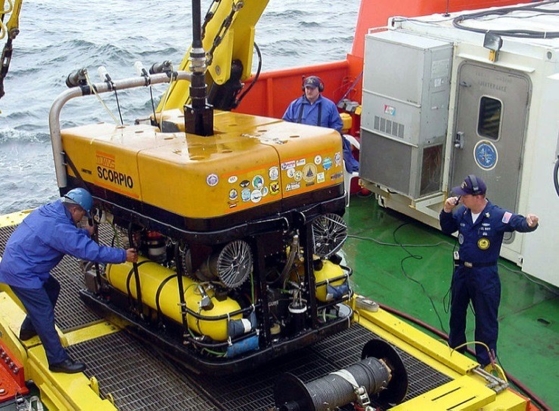Career Profile:
Electrical and Electronics Engineer
$60,000
Median YearlyIncome
good
WorkProspects
8
ProspectiveEmployers
This unit group is for all electrical and electronic engineers: These engineers design, plan, research, evaluate and test electrical and electronic equipment and systems.
full-time
Halifax
Post-Graduate Degree / Bachelor's Degree
Professional Engineer Certificate
What you do
Electrical and electronics engineering is a broad field encompassing the study of control systems, electromagnetics and antennas, power systems, communications, and computer hardware and software.
In the oceans technology sector, electrical and electronic engineers install, commission and deploy devices in the marine environment and on board marine vessels to enhance efficiency and effectiveness in all aspects of oceans- related industries such as communication systems to support military operations or search and rescue efforts.
An Electrical and Electronics Engineer performs some or all of the following duties:
- Conduct research into the feasibility, design, operation and performance of electrical networks, machinery and electronic communications, instrumentation and control systems;
- Design specifications for electrical and electronic systems and equipment;
- Develop maintenance and operating standards for electrical and electronic systems and equipment; and
- Investigate electrical or electronic failures.
What you need
- Problem-solving and decision-making skills are essential;
- A keen interest in the design and operation of electrical systems and equipment;
- Able to think in an analytical and logical manner;
- Able to communicate and cooperate with others; and
- Computer skills are essential.
Who might be hiring?
References and further reading
- Careers Nova Scotia
- Create your career plan
- Engineers Nova Scotia
- 2133 National Occupation Classification (NOC)
- Nova Scotia Apprenticeship Agency
* The employment outlook over the next few years for this occupational group is "good", which indicates the chances of a qualified individual finding work is above average.
Your Career Pathway
Opportunities for Hands-on Experience
Post-Secondary Educational Programs
Certification attests that the holder has met provincial requirements for the occupation. Certification is required to practice this profession.
